Mossad Says It Arrested Operative In Iran Before Cyprus Job
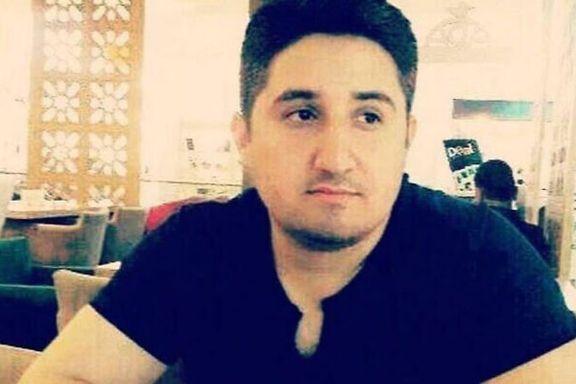
Israel says its intelligence agents in Iran succeeded in capturing the suspect behind an IRGC-planned attack on its nationals in Cyprus.

Israel says its intelligence agents in Iran succeeded in capturing the suspect behind an IRGC-planned attack on its nationals in Cyprus.
Mossad identified the suspect as Yousef Shahabazi Abbasalilo, who received “detailed instructions and weapons from senior Revolutionary Guard officials” to conduct the terror attack, thwarted a few days ago.
It also released a video showing the mastermind of the attack being interrogated. As part of the questioning, Abbasalilo confessed and revealed detailed plans.
Cypriot security forces dismantled the plot's infrastructure based on the information.
“We’ll get to every person that advances terrorism against Jews and Israelis all over the world, including on Iranian soil,” a senior Mossad official said.
Last year, Mossad captured a senior IRGC official on Iranian soil and interrogated him about weapons shipments to Iran's proxies.
The man introducing himself as Yadollah Khedmati, deputy commander of the Revolutionary Guards (IRGC) Logistics, said he regretted his involvement in shipping weapons to Iran’s proxy groups in Syria, Iraq, Lebanon, and Yemen and urged other IRGC officials to avoid engagement in such activities.
This is the third time evidence emerges of Israeli agents detaining an IRGC operative inside Iran and taping confessions. A short audio recording was published by Israeli media in May last year with a photo of a man introduced as Iranian national Mansour Rasouli, 52.
In the audio recording, Rasouli said he was sent to Turkey by the IRGC to establish an operational network to assassinate an Israeli diplomat in Istanbul, a Germany-based US general, and a journalist in France.
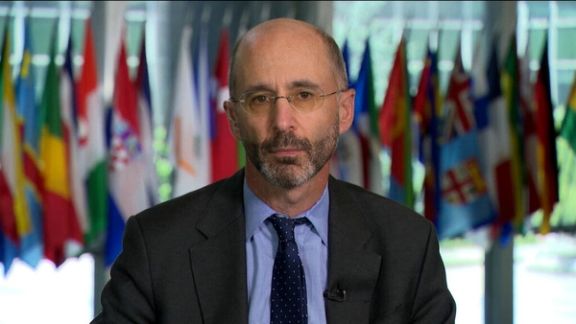
Iran International has learned that US special envoy for Iran Robert Malley is under investigation and his deputy has assumed his duties at the State Department.
After multiple inquiries, State Department Spokesperson Matt Miller said Thursday afternoon in a statement that "Rob Malley is on leave and Abram Paley is serving as acting Special Envoy for Iran and leading the Department’s work in this area."
Multiple sources told us that Malley is under investigation for yet unknown reasons and one source said that the Federal Bureau of Investigation (FBI) is also involved.
According to our sources, Malley has been absent for a considerable period prompting speculation about potential conduct-related issues, which could affect his security clearance.
Speaking to Iran International on the condition of anonymity, a source familiar with the case confirmed Mr. Malley's absence, saying, "He has completely vanished. No calls, no meetings."

Considering Mr. Malley's essential role in formulating US policy towards Iran, his abrupt and prolonged absence raised considerable questions. Iran International sought clarification earlier on Friday from the State Department regarding the nature of his leave and security clearance status.
In response, the State Department replied by email, "The Department of State, the Special Envoy for Iran, and his team remain deeply engaged on the formulation and implementation of US Iran Policy."
The Department's spokesperson reiterated the same during his daily briefing on Friday before spokesperson Miller confirmed that Malley is on leave.
The initial email did not clarify who is holding the position of ‘Special Envoy for Iran’. In further correspondence, we asked: "Can you please confirm whether Abram Paley is currently Acting Interim Special Envoy for Iran?" The state department's answer was short: "Hello, we decline to comment."
Journalist Barak Ravid tweeted after Iran International's exclusive report first appeared that Malley told him: "I have been informed that my security clearance is under review. I have not been provided any further information, but I expect the investigation to be resolved favorably and soon. In the meantime, I am on leave."
Another informed source confirmed to Iran International that Rob Malley did not participate in the early May negotiations with Iranians in Oman. Instead, the White House Middle East coordinator, Brett McGurk led the US delegation.
Axios had previously reported that McGurk journeyed to Muscat on May 8, following a visit to Saudi Arabia with National Security Advisor Jake Sullivan.

Malley's absence from the Oman negotiations implies that the White House and the US National Security Council have assumed control of the discussions with Iran, effectively sidelining the special envoy.
President Biden appointed Mr. Malley primarily to revive the JCPOA, abandoned by former President Donald Trump in 2018. During 2021 and 2022, Malley worked on convincing Iranian leaders to comply with the JCPOA's stipulated limitations on their nuclear program. However, the Iranian nuclear negotiators never agreed to meet with him or with any other US official.
During his tenure, the Biden administration practically stopped enforcing US oil sanctions intended to persuade Tehran to scale back its uranium enrichment program.
Iran was barely exporting 250,000 barrels of oil per day during 2019 and first half of 2020, but shipments began to increase in the latter part of that year as Joe Biden signaled his readiness to negotiate for the revival of the JCPOA. Industry sources report that Iran’s daily oil exports have now reached 1.5 million barrels.
According to Iran International sources, Malley had been deeply involved in trying to free dual national prisoners from Iran before his unexpected leave. The sources suggest that he intended to step down from his position following their release, hoping to end his tenure on a high note.
Earlier this year, Iran International released an exclusive report disclosing Mr. Malley's dealings with Iran's UN ambassador, Amir Saeed Iravani, a former senior official in Iran’s Supreme National Security Council.
These discussions are thought to be the first direct contact between the US and Iranian officials since Washington’s withdrawal from the JCPOA in 2018. In response to our January inquiries about these meetings, the State Department stated, "We have the means to deliver specific and firm messages to Iran when it is in America's interest to do so." The Financial Times confirmed our initial report in June.
UPDATED AT 20:15 GMT, June 29
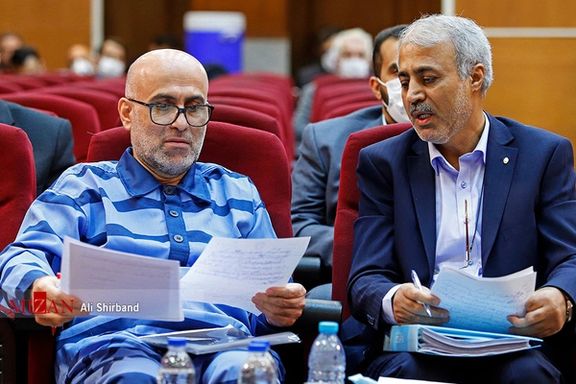
Iran’s judiciary says its former deputy was released from prison after serving just 45 months of a 31-year prison term after posting a bail of 3 trillion rials ($6 million).
Before being arrested in July 2019, Akbar Tabari held senior financial and executive positions within the Iranian judiciary for nearly 20 years.
He was jailed for leading a bribery network and accepting multiple bribes personally, sentenced to 31 years in prison, 12 1/2 years in prison for money laundering, and more than 15 years for other crimes that remain undisclosed.
In the announcement of his release, the judiciary claimed that Tabari "did not take any long-term leave during his term" and also "paid the fines he was sentenced to."
Transparency International ranked Iran 150th out of 180 countries in its 2021 Corruption Perception Index as one of the world's most corrupt countries.
As a result of Tabari's release, questions have been raised about the fairness of Iran's judiciary in high-profile cases, showing preferential treatment to former regime officials and those who can buy their way out of jail.
While regime opponents are subjected to immediate secret trials and severe punishment, including those arrested during the recent nationwide protests, the process of reviewing the charges of officials and their affiliates is usually slow, and the sentence is usually suspended after a short period.
The question also remains as to how a former government employee can post a $6 million bail when monthly salaries of top officials is around $1,000.
State media also announced the release of Mehdi Hashemi, the son of former prominent Iranian politician Ali Akbar Hashemi Rafsanjani, and Mohammad Ali Najafi, a former Tehran mayor and minister of education, suggesting a wave of reprieves for ex regime lackeys in the midst of the Eid festivities.

Iran International has obtained information about an IRGC-affiliated company active in supplying drones and missiles for Russia and Lebanese group Hezbollah.
An Iranian hacktivist group, called 'Lab-Dookhtegan' or Read My Lips, shared with Iran International exclusive information about the activities of the company, identified as ‘Tik’, sharing the photos and identities of several senior members of the company.
According to the group, the company has provided training on missile and drone production and their control systems to Hezbollah and Russian forces on several occasions this year.
The group also provided a list of the company’s senior executives, including CEO Rasul Sirati, his deputy Hamidreza Daneshi-Kohan, Kianoosh Morovatipour, the technical engineering manager of the company, Mohammad-Ali Razavi-Kohani, in charge of the assembly line and Heshmat Parsaifard, responsible for training Hezbollah forces.
The names of the cover companies used by the IRGC to evade sanctions are being revealed gradually, creating a crisis for the Islamic Republic.
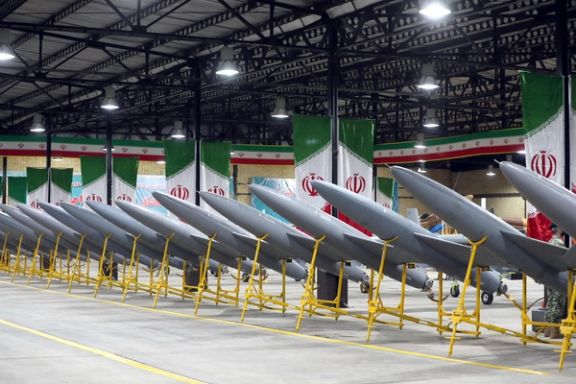
Earlier in June, the Israeli research center ALMA identified the Iranian scientists behind the Shahed 136 drones used by Russia in its war on Ukraine. A report exclusively obtained by i24NEWS identified two civilian companies in Tehran that manufacture components for the Shahed drones and are reportedly operated by the IRGC.
The company Shakad Sanat Asmari, also called Chekad Sanat Faraz Asia, manufactures parts for the Iranian aviation industry and its former CEO Ehsan Rahat Varnosfadrani is the company's chief scientist. Daria Fanavar Borhan Sharif (Sadid Sazeh Parvaz Sharif) is the other company, specializing in communication, optical, and electronic circuits, and Ehsan Imaninejad is its CEO.
Pundit Jaber Rajabi told Iran International that the main reasons that Russia is using Iranian-made drones are their cheap prices and the fact that Moscow wants to have an accomplice in its invasion.
He said the Islamic Republic has spent three decades developing its military technology but since it cannot manufacture airplanes and jets, it has to focus its energy and assets on missiles and drones.
Political analyst Mehdi Mahdavi-Azad told Iran International that the issue of Iran’s drones and missiles had not been very grave for the West until Russia started to use them. He believes that before the Russian invasion, Europe and the United States were not seriously concerned about the Iranian missiles because their range is not more than 2,000 kilometers, therefore not reaching Europe's borders.
Mahdavi-Azad said the regime cunningly has not worked on long-range missiles to avoid worries by the Europeans. However, Reuters reported on Wednesday that European diplomats have told Iran they plan to retain EU ballistic missile sanctions set to expire in October under the defunct 2015 Iran nuclear deal, a step that would provoke Iranian retaliation.
Only hours after the report was released, Alireza Sabahifard, the commander of Air Defense Force of Artesh, Iran's traditional Army, said, “This year, the production of advanced long-range radar, missile and drone systems is on the agenda of the Air Defense Forces of the Army.”
Iran’s supply of drones to Russia for use in its war on Ukraine has been condemned by the US and its NATO allies and met with sanctions by the US, European Union and other states.
In April, the US Treasury Department imposed sanctions on a procurement network, which consisted of Iran’s Pardazan System Namad Arman (PASNA) and the entity's front companies and suppliers in Iran, Malaysia, Hong Kong and China that Washington said have enabled PASNA's procurement of goods and technology.
In March, Treasury’s Office of Foreign Assets Control coordinated with the FBI to designate four other firms – including the Iran-based Defense Technology and Science Research Center and its procurement firm Farazan Industrial Engineering Inc -- and three people in Iran and Turkey for allegedly buying equipment, including European-made engines, to be used for the regime’s drone and weapons programs.
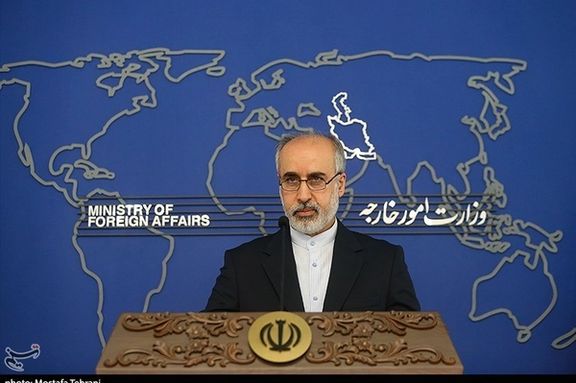
Iran criticized the Swedish government for permitting disrespect to the Muslim holy book, the Quran.
Two men publicly burned the Quran outside Stockholm's central mosque on Wednesday, an act approved by a Swedish court.
It was deliberately timed to coincide with the significant Muslim holiday, Eid al-Adha, further magnifying the incident's significance.
Urging the European country to take responsibility and address the issue seriously, Iran's Foreign Ministry Spokesperson Nasser Kanaani said: “Creating a platform for the repetition of sacrilege against celestial sanctities, especially during the sacred days of the Islamic world and the gathering of millions of Muslims at the world congress of hajj, is a provocative, unacceptable act.
“Insulting heavenly scriptures is a manifestation of violence, hatred, and contrary to the fundamental values of human rights," disregarding the regime's systematic oppression of women and minorities under its own jurisdiction and its generally appalling human rights record.
Some 200 onlookers witnessed one of the two protesters tearing up pages of a copy of the Koran and wiping his shoes with it before putting bacon in it and setting the book on fire, while the other spoke into a megaphone.
Some of those present shouted "God is Great" in Arabic to protest against the burning, and one man was detained by police after he attempted to throw a rock.
Meanwhile, Morocco recalled its ambassador to Sweden late Wednesday to protest the desecration.
Turkey’s foreign minister also criticized the move saying it is “unacceptable to allow anti-Islam protests in the name of freedom of expression”.
Burning religious texts is "disrespectful and hurtful", the deputy spokesperson for the US State Department told reporters in a daily briefing as well. "What might be legal is certainly not necessarily appropriate," Vedant Patel said.
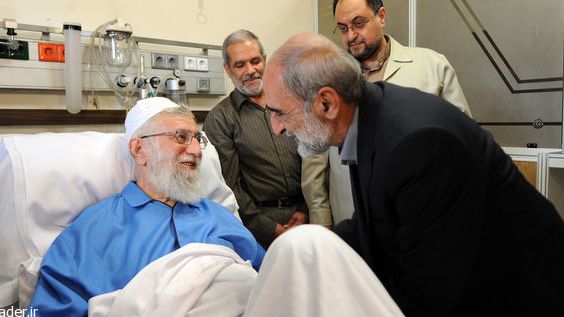
Our war against “the enemy” will end only if we give up real Islam, or if the United States gives up its animosity, an Iranian firebrand ideologue has said.
The man is Hossein Shariatmadari, a hardliner trusted by Supreme Leader Ali Khamenei and appointed by him to run the Kayhan Daily in Tehran, the regime’s most uncompromising media outlet.
While Shariatmadari can be regarded as an extremist who does not mince words and is less diplomatic than the 84-year-old autocrat who appointed him, his ideas cannot be dismissed. As long as Khamenei is alive, Shariatmadari’s words are closer to his thinking than what any Islamic Republic diplomat might say.
Addressing a congregation marking the death anniversary of an ayatollah assassinated four decades ago, Kayhan’s chief editor said that the kind of Islam the regime upholds is “not American Islam.” The difference between true Islam and ‘American Islam’, he claimed is pursuing justice. But for Khamenei justice means an unending war against Israel and the United States.
Any kind of Islam other than what Khamenei demands is fake according to the ideology of the Islamic Republic, which the aging autocrat defends with all the destructive means at his disposal. This was also in the heart of his animosity toward Saudi Arabia, which he many times described as a “corrupt” system because it cooperated with the United States, which protects Israel.
Shariatmadari said, “our war with the enemy is ever lasting and permanent, and we have achieved a lot from the beginning, but still have a long way to go.”
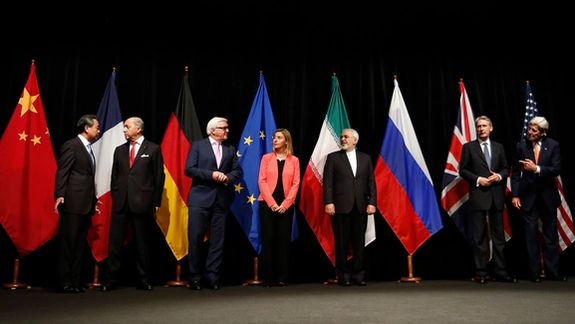
The Islamic regime has indeed armed and supported tens of thousands of militants throughout the region with the aim of defeating the United States and destroying Israel. It is also a few steps away from becoming a nuclear threshold state, if not outright producing nuclear weapons.
When President Barack Obama was crafting the JCPOA nuclear deal with Iran, his aides told the media that the President aimed higher than a nuclear deal. His ambitious goal was to use “the strategic opportunity” to try to convert Iran from foe to “friend”, as an influential media outlet put it at the time.
However, as soon as the deal was signed, the following year Iran’s Revolutionary Guard wrote ‘death to Israel’ on their missiles, and Obama had to pay hundreds of millions of dollars to get American hostages back.
In the approximately 18 months Obama was in office after the JCPOA was finalized in mid-2015, no strategic breakthrough took place. Iran got its billions from the deal and spent most of the money fueling the wars in Yemen, Syria and building up its proxy forces in Iraq, despite subtle hints of possible wider cooperation his diplomats gave during the nuclear talks.
The Biden administration after trying for two years to revive the JCPOA has apparently realized that Iran is not ready to play ball and is contemplating a limited agreement to nominally limit its nuclear program while the president fights for re-election.
But Khamenei is the one who defines the nature of US-Iranian relations. For him the concept of America and Israel being eternal enemies is almost sacred and he does not miss a chance to say so. On June 4, he once again revealed his lack of interest in any shift in policy, indirectly referring to a limited deal.
“Our young people should pay attention. The enmity of world arrogance will not disappear with tactical retrenchments. Some imagine that if we retreat on some issue, their enmity will decrease against us. This is a mistake.”